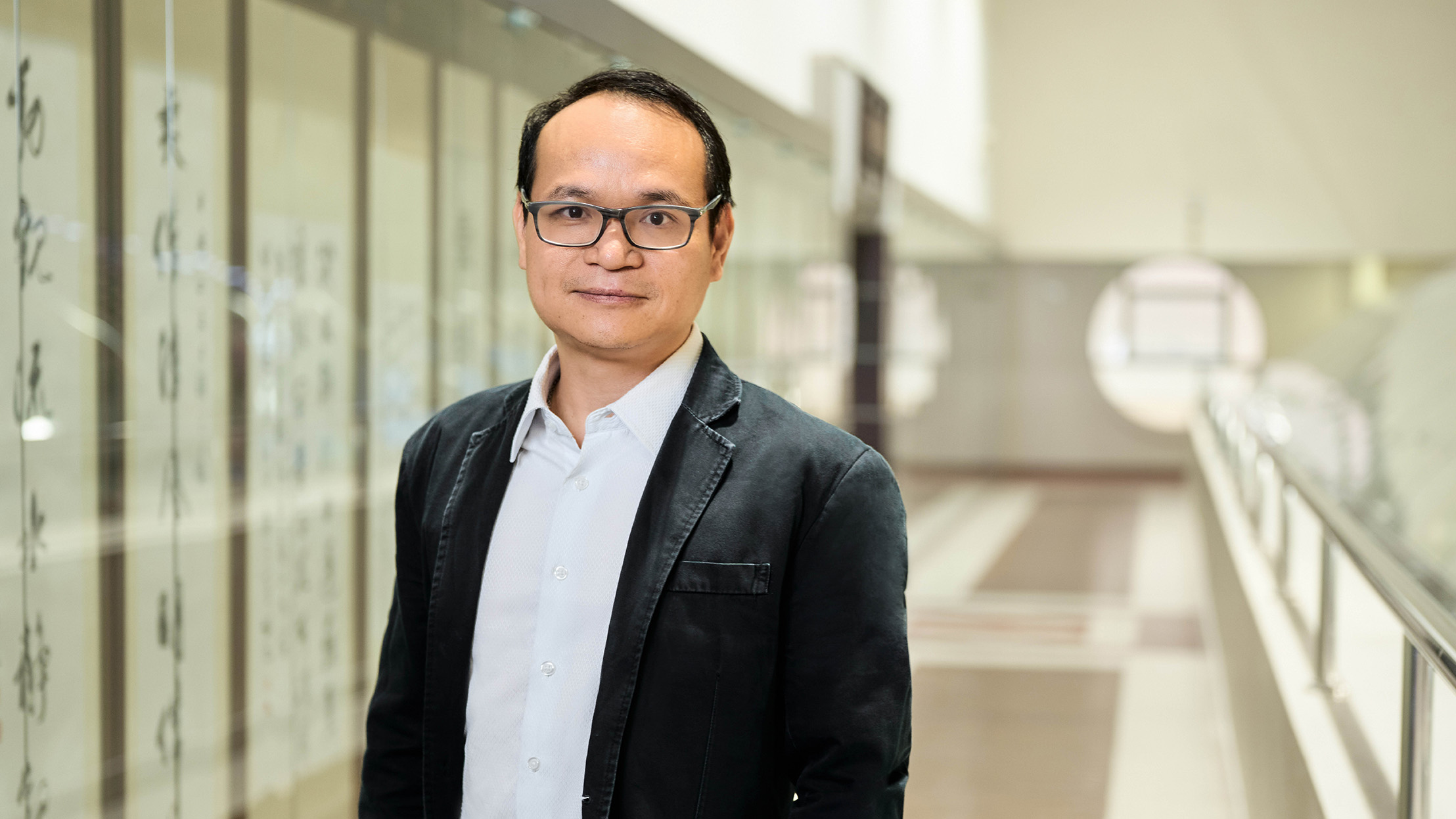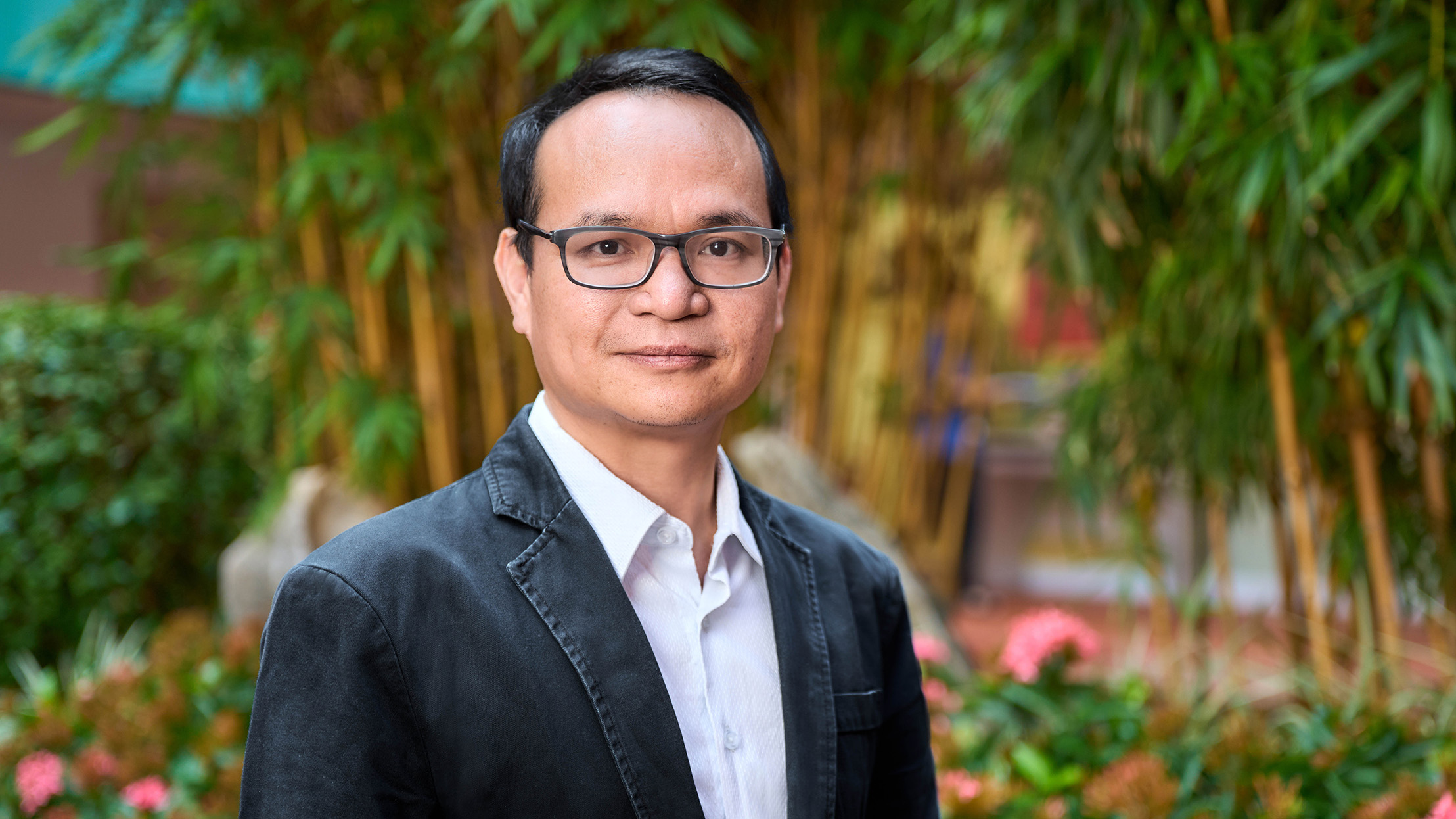

The parable of the “blind men and the elephant” vividly illustrates how individuals can perceive a single entity in diverse ways due to their distinct experiences and perspectives. Similarly, learning a foreign language requires an open attitude to understand the evolution of vocabulary, cultural subtleties, thinking patterns, and social contexts. By integrating and contemplating various linguistic components, learners can achieve a profound understanding and mastery of a new language.
Associate Professor Teng Feng of the Faculty of Languages and Translation has extensive involvement in applied linguistics, particularly in second language acquisition and computer-assisted language learning. Revered as a luminary in linguistics, he has garnered notable accomplishments over the years. From 2021 to 2024, Professor Teng consistently secured a position within the top 2% of scientists globally, as recognised by Stanford University. Furthermore, he stands as one of China’s top ten exemplary scientists specialising in language and linguistics, representing the sole scholar from Macao to grace this prestigious list. In this interview, Professor Teng shares his wealth of experience in foreign language instruction, elucidating complex foreign language learning concepts through the lenses of psychology and pedagogy in an accessible and enlightening manner.
The Journey to Mastering Language Teaching
Have you ever encountered challenges in achieving fluency in a foreign language despite having a strong foundation? Associate Professor Teng Feng, nurtured in a multicultural and multilingual environment, recognised this challenge early in his life. Transitioning between China and Japan during his school years, he interacted with peers from diverse backgrounds and experienced many struggles at the rudimentary stages of language acquisition, unable to progress. This observation ignited his curiosity and passion for second language learning.
Conventional foreign language pedagogy traditionally focuses on the four fundamental skills – listening, speaking, reading, and writing – with significant emphasis on vocabulary and grammar, typically evaluated through assessments and examinations. However, Professor Teng contends that teaching a foreign language goes beyond mere mastery of these components. He asks, “Why do some learners struggle to apply their knowledge in real-world scenarios? What causes a fear of speaking? Why does motivation for learning dwindle over time? Addressing these questions requires profound academic exploration.” His perspectives have steered him towards an academic career in linguistics, aiming to enhance the effectiveness of second language instruction and cultivate the next generation of educators.
Is there a universal approach for effectively mastering foreign languages? How can teaching be both efficient and comprehensive? Using the analogy of the blind men and the elephant, Professor Teng highlights the complexity and diversity inherent in foreign language acquisition. He explains, “No single teaching methodology can meet the diverse needs of all learners or guarantee language proficiency. Each individual brings a unique background, and different approaches have their distinct advantages and limitations. Educators must deeply understand their students’ specific needs and tailor their instructional techniques accordingly.” This approach transforms educators into skilled facilitators, capable of adapting to and meeting the varied needs of their students.
Enhancing Metacognition in Foreign Language Instruction
Professor Teng’s scholarly pursuits transcend traditional linguistics, integrating perspectives from psychology and education to examine language pedagogy through an interdisciplinary lens. Exploring facets such as self-awareness, growth mindset, cognitive ability, and memory skills, he highlights the importance of these elements in enabling students to navigate the complexities of language acquisition. His approach leverages psychological insights to develop practical methods that go beyond conventional linguistic paradigms, which often focus primarily on the structural aspects of language.
Professor Teng advocates for teaching methodologies that enhance students’ metacognitive abilities, emphasising their capacity for introspection. In an upcoming publication by Cambridge Press, he asserts that proficiency in metacognition not only cultivates self-directed learning but also boosts students’ intrinsic motivation. Experimenting with innovative techniques, he has introduced an educational mobile application that uses virtual reality technology to support English language acquisition. By scanning real-world objects with a smartphone, the application reveals corresponding English vocabulary and sentences. While this method may not lead to significant leaps in English fluency, it notably increases student motivation, reduces apprehension towards English learning, and fosters a positive learning cycle. Professor Teng emphasises, “Motivation is a pivotal catalyst for learning, intricately linked to metacognition, self-regulation, and growth mindset, which are key factors influencing educational outcomes.”
In tackling the unique challenges students face in language acquisition, Professor Teng actively explores diverse pedagogical approaches. He notes that learners with foundational language skills might struggle with extensive reading and listening in an immersive linguistic environment. “Begin by identifying whether difficulties stem from limited vocabulary or reading abilities. Setting achievable vocabulary goals and progressively enhancing language proficiency based on these benchmarks can be beneficial,” he advises. Using a variety of learning resources could be helpful to systematically prepare students for comprehensive reading and listening tasks. Ultimately, language instructors and curriculum developers should tailor their teaching methodologies to accommodate diverse proficiency levels, thereby optimising educational outcomes for each learner.
Latest Research on Linguistics and Artificial Intelligence
Language acquisition is a cornerstone of human civilisation and societal engagement. With the progression of AI technologies and the dynamic shifts in social landscapes, interdisciplinary investigations have revitalised the conventional domain of linguistics. Professor Teng stands out for his substantial contributions, weaving together perspectives from diverse fields into linguistics, akin to assembling disparate parts of an elephant to reveal a unified whole. This integrative methodology has propelled him to international acclaim, underscored by his consistent presence among the top 2% of global scientists for the past four years.
Pioneering the integration of AI into linguistic inquiries, Professor Teng focuses on the impact of artificial intelligence on cognitive processes within language acquisition. His research delves into how AI tools shape students’ cognition, emotions, and experiences during English writing tasks, unearthing the profound influence of AI on human language comprehension. These revelations offer invaluable insights into the integration of AI within language education, heralding novel avenues for innovative language learning methodologies.
In 2019, Professor Teng embarked on a remarkable initiative by founding the International Journal of TESOL Studies, a scholarly platform designed to facilitate the exchange and discourse of research among linguistics scholars worldwide. Single-handedly steering the journal, Professor Teng has overseen all aspects of its operation, from editing to promotion. The journal, which releases four issues annually, each featuring approximately ten articles, has garnered acclaim and recently secured a place in the Scopus index – a comprehensive database of peer-reviewed literature and citations. This accomplishment underscores Professor Teng’s profound impact in the academic realm.
Devoted to the Boundless Ocean of Applied Language Research
Professor Teng is dedicated to enriching the outcomes of teaching and research in linguistics, aspiring for his efforts to serve as a catalyst for advancements in diverse regions. His unwavering commitment to research is evident through a consistent stream of publications that shape the landscape of linguistics and reinforce his position as a prominent academic figure. Reflecting on his academic journey, he shares, “The true reward in my journey lies in the perpetual process of learning and evolution. Each stride, whether in refining research methodologies or overseeing academic publications, fuels my motivation.”
Embracing the motto “knowledge knows no bounds; learning has no end,” Professor Teng exudes enthusiasm for the future of linguistics. He directs his research towards pertinent social issues to amplify the impact and visibility of his work. Observing the growing focus on artificial intelligence and computer science at MPU, he eagerly anticipates leveraging his expertise in these domains to bolster the global standing and influence of higher education in Macao.
